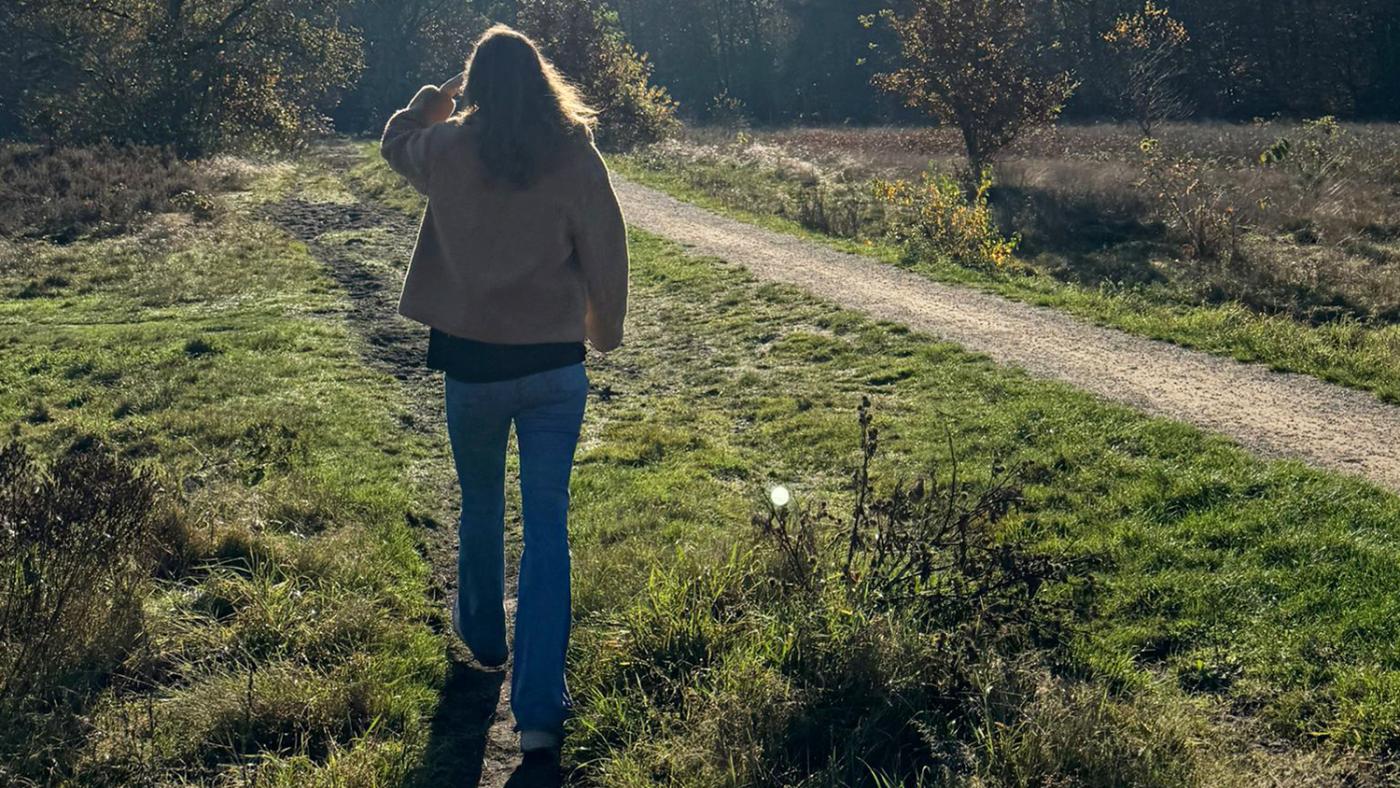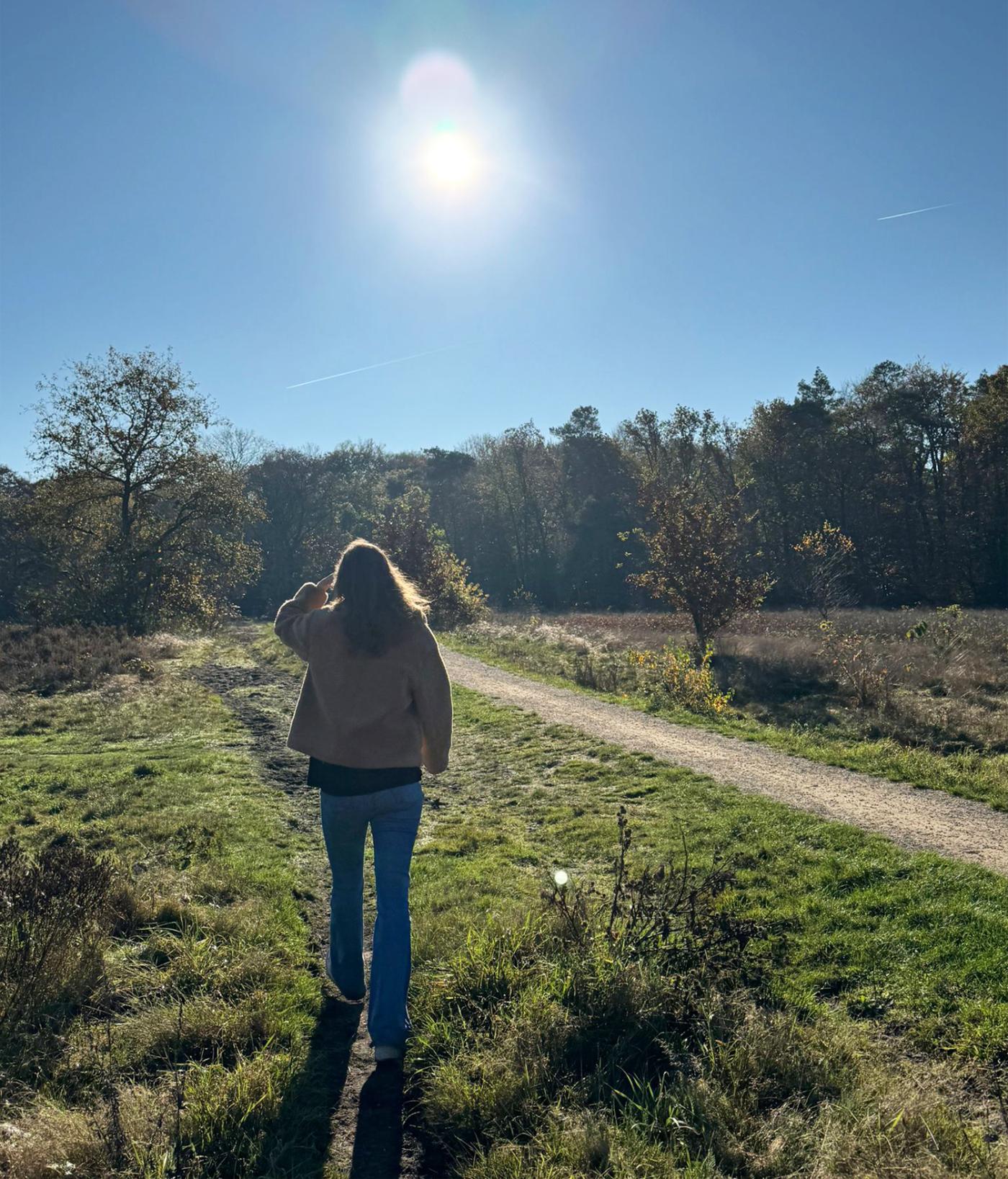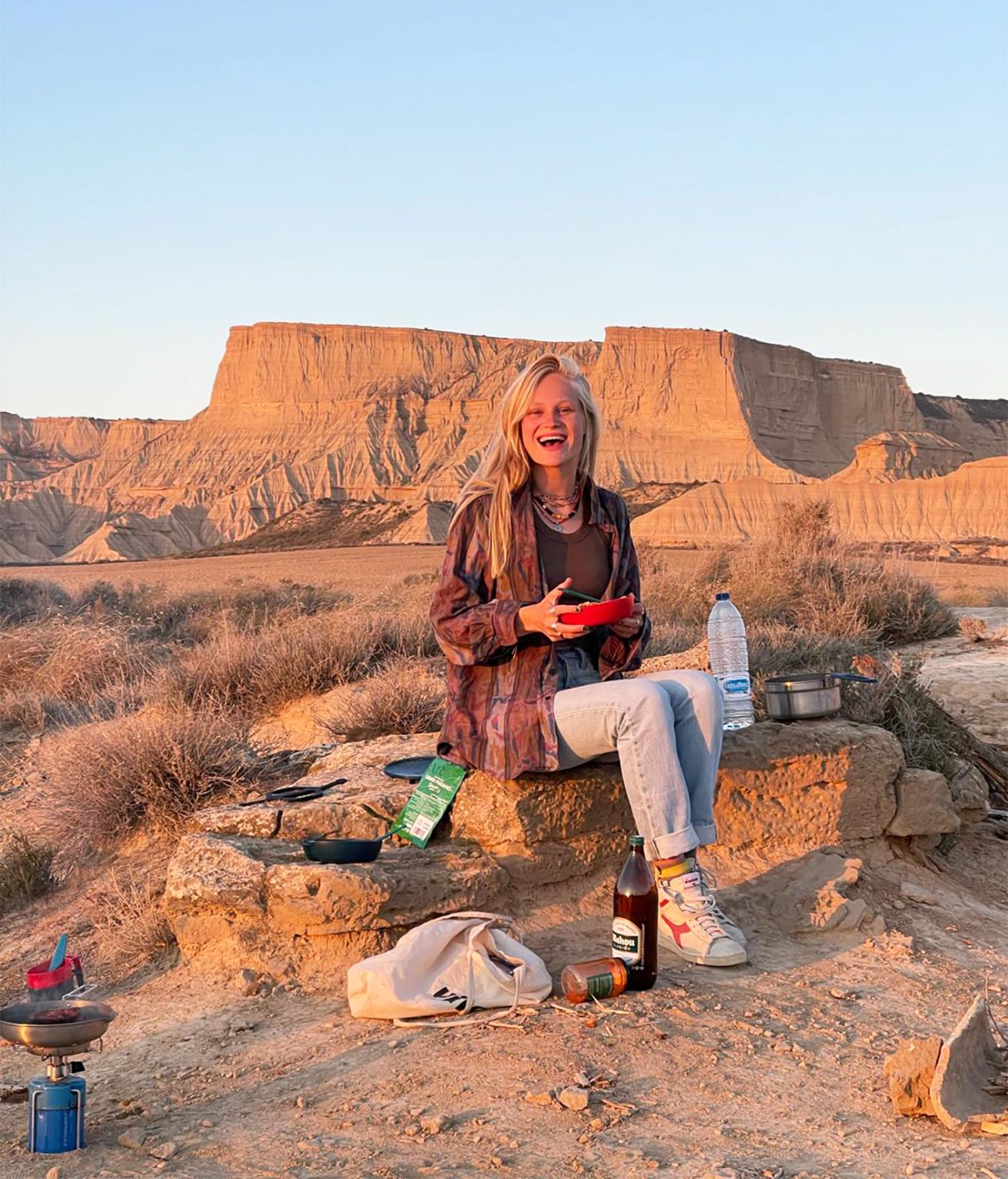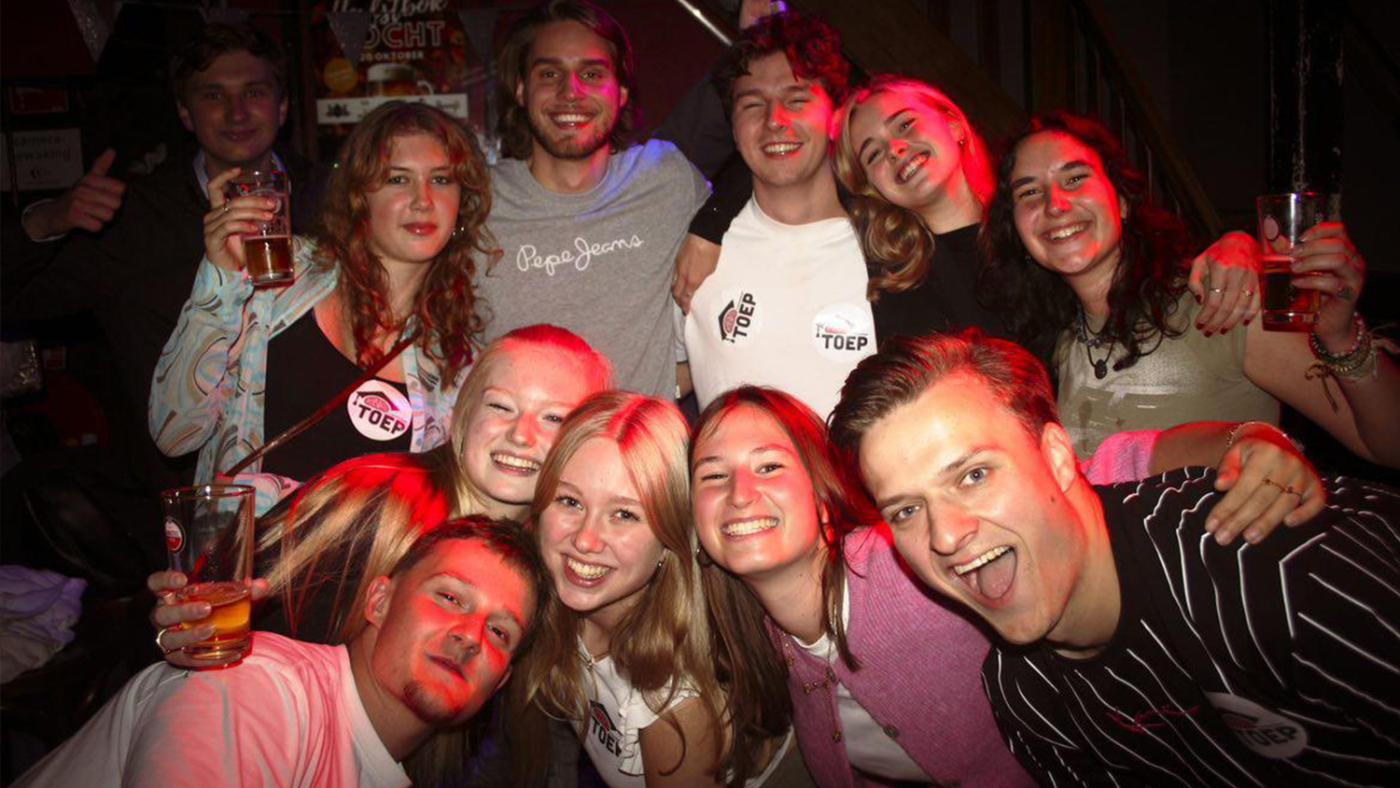The Covid generation is about to graduate
'I felt like I had to make up for lost time'

'I realised that I was falling behind socially'

Anouk (the student asked DUB to use a fictitious name to maintain her privacy, Ed.) started studying Liberal Arts & Sciences (LAS) in 2020, majoring in art, culture and history. The Netherlands was under a strict lockdown, so all classes were online. At the time, she was troubled by the absence of contact with other first-year students, but she managed to obtain all 60 credits required to pass. "I don't think I would have made it if a lockdown wasn't in place. I would have probably been overstimulated and too busy with social activities."
Her classes returned to campus in the second year. "Only then did I discover that students enrolled in other programmes spend most of the first year taking the same classes. LAS students can choose courses from different programmes, so they are always in a class full of strangers. It is also common to be in a class with students who are a year above you. Both of those things were quite intimidating for me."
Anouk also thinks she might not have stayed in the LAS programme if it wasn't for the pandemic. "It was only after classes returned to campus that I realised the programme wasn't for me. But I was not motivated to start a new programme because I had already obtained so many credits." Returning to campus was a bittersweet experience for her. "On the one hand, I was happy to finally experience what it was like to study normally and meet my classmates in real life. On the other hand, it was hard to suddenly be back in class as it required more time and energy than online classes."
Anouk also felt that her social life had fallen behind. "I shared the classroom with people who were not students during the pandemic or who had attended half of their classes in person when the pandemic hit, so they already knew each other a little bit. I felt different, which made me insecure sometimes."
After the pandemic was over, UU got money from the Dutch government to work on students' mental health and wellbeing. Wellbeing Week is one of the initiatives that started at that time, for example. Anouk was happy to participate. "I did some super fun things with my roommates. It's a great way to try out new sports or get inspired. It can give students a nudge to join a sports club. So, I think it makes a lot of sense."
Asked whether she thinks that Covid ruined her university experience, Anouk says it wasn't all bad: "I really liked online classes." However, "in hindsight, I can see how much it affected my social life. Your first year pretty much determines the rest of your studies. In my case, the fact that it was completely online ruined my social life in the subsequent years."
Anouk currently works in a museum in Amsterdam. She chose not to pursue a Master's degree, which she finds liberating. "I'm totally in my element now. Having a job suits me. I enjoy doing something I'm good at, the structure, and having a stable income. These are very important things for me."
'Covid ruined my college experience'

Sanne started studying Cultural Anthropology in 2019, not 2020. Hers was a common first year until the first lockdown was announced in the middle of the third term. "Suddenly, we had to switch to online classes, which was so weird, but I didn't think it was a big deal at the time." Instead, Sanne assumed the lockdown would be short-lived. "I never expected to have nothing but online classes for a year and a half."
Sanne appreciated having had at least a taste of what studying under normal circumstances was like. At the same time, this made the lockdowns all the more bitter because she knew what she was missing out on. She had to leave the flat she was subletting and move back in with her parents. "It was such a difficult time. It was so quiet and lonely, I didn't feel happy at all."
Sanne was a third-year student when students were allowed to return to campus. She was overjoyed. "I was so relieved. My classmates and teachers were all looking forward to it as well." However, having classes in person again took some getting used to. "My classmates seemed to be going through the same thing. They were rather passive and didn't say much in class. Fortunately, they gradually became more and more outspoken and classes got more and more dynamic as a result."
Sanne was scared that the virus would come back and they would be forced to go back to online classes, but that didn't happen in the end and her social life improved a lot. "I was able to meet up with my classmates and study together again," she says. Even so, she does think that Covid-19 damaged her college experience. "It damaged my learning process, as I feel that I have learned less, and it damaged my social life. after Covid, I felt like I had to make up for lost time."
She thinks she is managing to do that, though. "I started seeing other people and joined a dance class with a friend. The following year, I also joined a student dance club." Her dating life also got back on track. "It was nice to just meet someone for a drink on a terrace. That's how I met my boyfriend, by the way. We are still super happy three years later."
After her Bachelor's, Sanne worked in a lunchroom in the city centre for a year. "I didn't know what I wanted to do after my studies at all. Should I continue studying or get a serious job? I then chose a low-key job to save up for a trip to Asia with my boyfriend." Sanne is currently taking an online part-time interior design course and hopes to find a job in that field.
'It feels much more natural to study now'

Bastiaan is the student wearing a black and white striped shirt, at the bottom right of the picture. Photo: courtesy of the student.
When Bastiaan started studying Liberal Arts & Sciences with a major in Film Studies, he didn't care what form it would take. "I was already used to online classes from sixth grade, so it wasn't a big change for me," he explains. He does stress, however, that it was hard to concentrate during online lectures. "When you're watching a lecture in person, you don't reach for your phone because the lecturer can see it and that's rude. But, online, nobody saw it, so next thing you know, you're scrolling on your mobile."
Bastiaan felt a distinct lack of connection between lecturers and students during the pandemic, as well as a lack of connection between students themselves. This situation was tough for him, mentally. He longed to work in groups, in person. "I missed a connection with society. Online classes are a nice alternative. It was nice that we could continue our courses and get credits, but I still preferred to study on campus, no matter how good the alternative was."
Other than that, studying went well for Bastiaan that first year. "I always tell people that I got my propaedeutic in my little attic room," he says. He was in his second year when classes could take place on campus again, and he remembers how happy he was when that happened. "I noticed that everyone around me was just as driven after Covid, though going back to normal took some getting used to at first."
Bastiaan did not notice any of the initiatives the university took to boost students' mental health after the pandemic. "I think it's pretty nice of the university to pay attention to this, but they ended up missing the mark. It is very difficult to get a grip on student wellbeing from the top down anyway." He believes those initiatives were less effective than the university would have liked.
"Covid affected my college experience a lot, but I wouldn't say it ruined it. I have found a nice new path now. I quit LAS and am now pursuing a Bachelor's degree in Applied Psychology in Nijmegen." According to him, there is a huge difference between his first year at LAS and his first year in Nijmegen. "Everything goes much more naturally now and I can relate to my classmates more."
Bastiaan used to be a member of a student association in Utrecht, but he left it. Now, he is part of the study association of his programme in Nijmegen, and he says he's having a great time. He also moved back in with his parents in Arnhem. In Utrecht, he used to rent a room. "On this new path, I like having that stability and not having to put so much energy into finding a room."